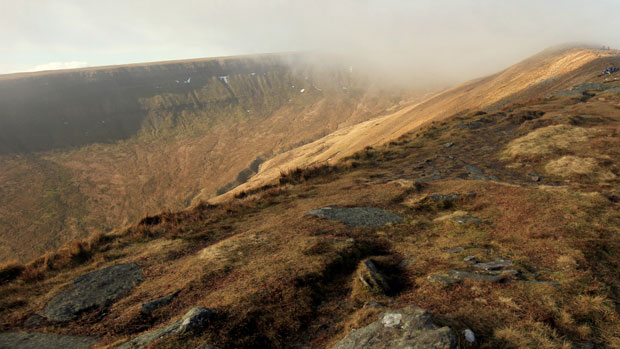
Sas brecon beacon deaths: 'gross failures' by mod
- Select a language for the TTS:
- UK English Female
- UK English Male
- US English Female
- US English Male
- Australian Female
- Australian Male
- Language selected: (auto detect) - EN
Play all audios:
The Ministry of Defence made a "catalogue of very serious mistakes" before and during an SAS march in which three Army reservists died, a coroner has ruled. Lance Corporals Craig
Roberts and Edward Maher and Corporal James Dunsby died from the effects of hyperthermia following an exercise in the Brecon Beacons on 13 July 2013. The three men had been attempting to
complete a 16-mile march in 8 hours 45 minutes on one of the hottest days of the year, as part of a six-month SAS selection process, one of the toughest in the world. SUBSCRIBE TO THE WEEK
Escape your echo chamber. Get the facts behind the news, plus analysis from multiple perspectives. SUBSCRIBE & SAVE SIGN UP FOR THE WEEK'S FREE NEWSLETTERS From our morning news
briefing to a weekly Good News Newsletter, get the best of The Week delivered directly to your inbox. From our morning news briefing to a weekly Good News Newsletter, get the best of The
Week delivered directly to your inbox. Delivering her ruling today, Coroner Louise Hunt said the men would have survived if the march had been cancelled earlier when other soldiers fell ill,
reports the BBC. There were "gross failures" by the MoD, including a lack of preparation, poor organisation and a "chaotic" response on the day, she said. Hunt ruled
that the failures did not amount to unlawful killing but that "neglect" had contributed to the deaths. Soldiers had been "inadequately briefed", commanders failed to
fully understand the significance of heat illness, water supplies were insufficient and the closest hospital was not correctly identified in the medical plan. Despite the men using GPS
trackers, it took more than 40 minutes for anyone to notice that Cpl Dunsby and LCpl Maher were stationary. Brigadier John Donnelley from the MoD apologised for the deaths of "three
fine soldiers" and said the testing exercise had since been changed. "We have already made a number of changes to the exercise in terms of the way it is run as a result of our own
investigations and from those of the Health and Safety Executive," he said. However, the coroner expressed concern in her ruling that there was still no clear plan or guidance for the
detection and treatment of heat illness. Speaking outside the Solihull Coroner's Court, Cpl Dunsby's widow Bryher said the MoD had "displayed no responsibility, no
accountability and no humility for their role in creating the culture which led to the events of the 13 July 2013". HEATWAVE LINKED TO DEATHS OF SOLDIERS IN BRECON BEACONS 15 July 2013
BRITAIN'S blistering summer heat has been linked to the deaths of two servicemen who died while taking part in a training exercise on the hottest day of the year. Police and the
Ministry of Defence are investigating the deaths of the men who are believed to have been taking part in the selection process for the Territorial Army section of the SAS, Sky News reports.
They were part of a group deployed in the Brecon Beacons (above) on Saturday when temperatures reached 29.5C. A third man who took part in the exercise is in a serious condition in hospital.
The Brecon Beacons is one of several locations used by the military for training exercises, The Independent says. Its "rugged and sprawling terrain" helps prepare soldiers for
warfare and elite forces personnel like the SAS often make use of it. The BBC understands that the men who died on Saturday were taking part in an exercise that was supervised but would have
"involved them acting on their own and moving from checkpoint to checkpoint." The training had been under way for several weeks and the two victims were believed to have reached
the "early stages of the final selection stage". Phil Speck, an experienced walker who was in the Brecons on Saturday, told the BBC he had seen several soldiers "in full
kit" who appeared to be struggling in the heat. "To start with they looked fine, he said. "Towards the end of the day they were feeling the heat. One soldier spent quite a
period of time recovering." Colonel Richard Kemp, a former infantry commander, told the broadcaster that the determination of troops hoping to be accepted by an elite unit such as the
SAS could "sometimes cloud your judgement". Kemp said that soldiers operating on their own, rather than as part of a group, were particularly vulnerable to pushing on even if they
were exhibiting "symptoms of heat illness". "Sometimes it can engulf you before you've realised what's happening," he said. Health authorities have urged the
public to take care after predictions the heat wave will last until next weekend and temperatures may get as high as 32C on Wednesday. Explore More In Brief